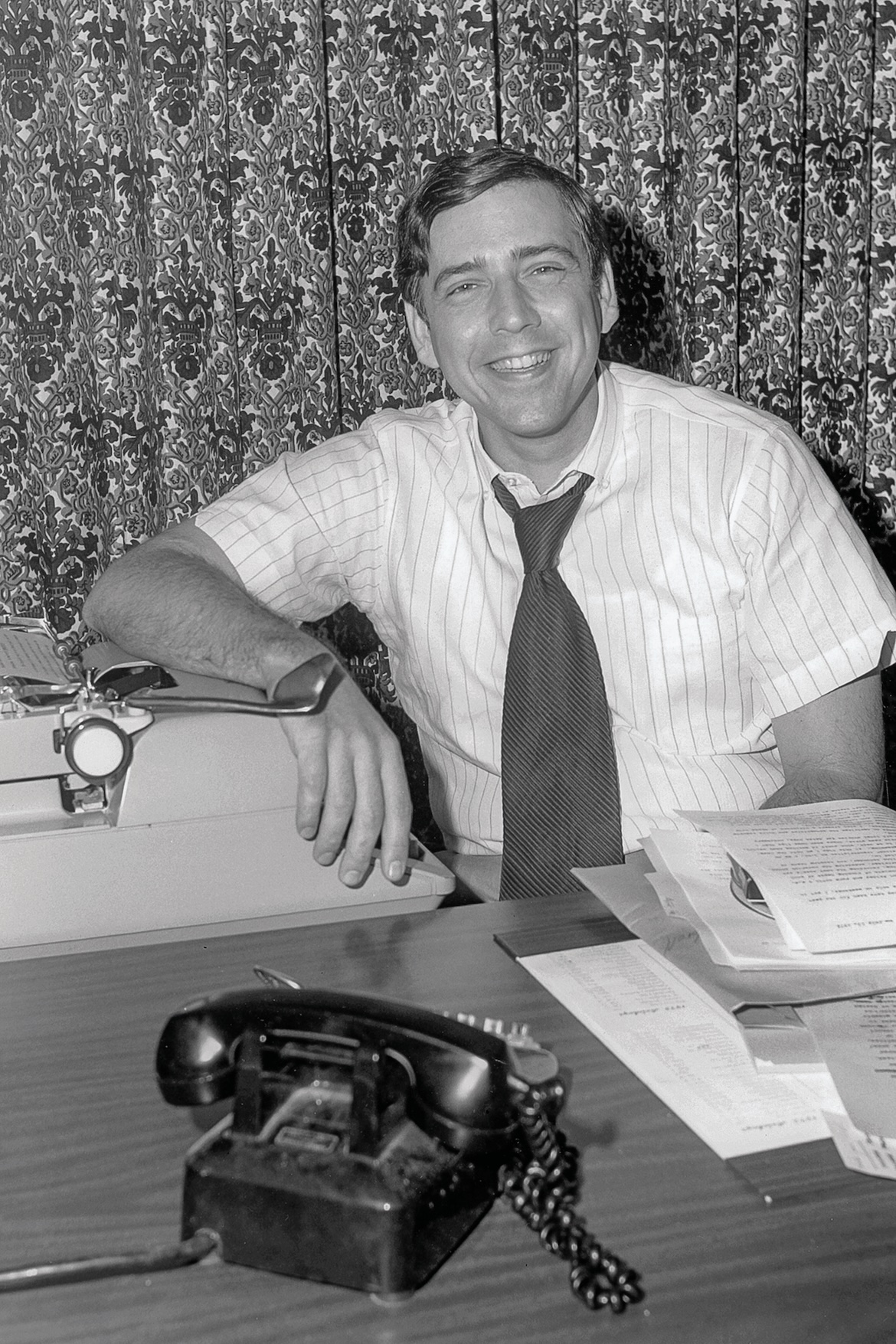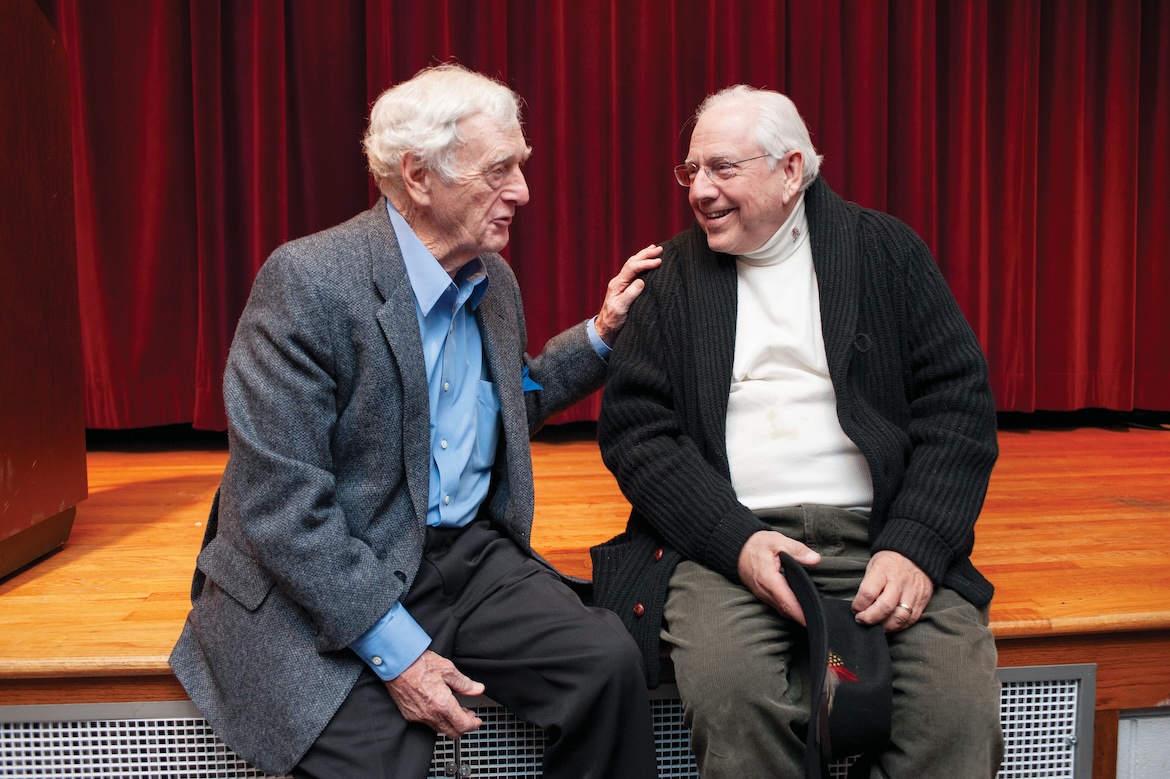
7 minute read
Media for Tomorrow
MTSU’s School of Journalism and Strategic Media celebrates 50 years of telling stories and breaking news
by DeAnn Hays
Back in the early 1970s, MTSU commissioned a study about starting a communications program. Approved in 1972, the program began when Ed Kimbrell started the Department of Mass Communications, with sequences in advertising and public relations, news-editorial, graphics and photography, and broadcasting.
This spring the School of Journalism and Strategic Media, belatedly after the pandemic, celebrated 50 years of teaching students reporting, storytelling, breaking news, and everything in between.
Now part of the nationally esteemed College of Media and Entertainment, the school boasts more than 300 students, over two dozen faculty members, two degrees, and nine concentrations. Three of those concentrations are brand-new: Entertainment Journalism, Environmental Journalism and Communication, and Social Justice Journalism.
“I am so proud of the School of Journalism and Strategic Media, which is known throughout the nation for the education it has provided our students for 50 years,” said CME Dean Beverly Keel, an MTSU alumna and former award-winning music industry journalist.
“What I really admire is that it continues to provide the foundation for journalism, advertising, public relations, sports media, and media design while constantly evolving to address the changes in the industry. No matter how technology changes, our graduates are prepared to communicate.”

Making a World of Difference
Director Katie Foss says MTSU’s School of Journalism and Strategic Media equips students with professional knowledge and is focused on preparing the next generation of leaders in the ever-changing journalism and mass communication industries.
As one example, Matthew Taylor and Jun Zhang, both assistant professors, now run MTSU’s Social Media Insights Lab that offers hands-on access to opensource and subscription platforms used by leading brands like Unilever, Delta, Nestle, and GSK. The new Ever Blue Branding agency also provides real-world experience for students in Advertising and Public Relations, now elevated to a stand-alone degree.
“Our professors give students beyond-the-classroom experiences in any way they can—calling sports for ESPN+, going to the action to get stories, and working with real clients in our ad and PR agency. We involve students however we can,” Foss said.
“Our curriculum offers interesting and unique courses, like data journalism, crime and media, and election coverage.”
Alumni currently work as news reporters and anchors at major television and radio stations and newspapers, including NBC, CBS Los Angeles, SportsNet New York, the Associated Press, the Detroit Free Press the Atlanta Journal-Constitution, Sirius XM Radio, and more.
“Whether it’s traveling across the state to immerse themselves in a community and writing about its most colorful characters, to visiting Iowa to report on the presidential election, our students receive real-world, hands-on experience,” Keel said.
“It’s our faculty who truly make the difference. They are the most caring, dedicated, and kind faculty that you will find anywhere. Indeed, they continue to mentor their students decades after graduation.”

Working in Various Fields and Formats
Notable alumni include Ken Strickland, NBC News vice president and Washington bureau chief; Justin Hart, Fox Soul supervising producer; Holly Thompson, WSMV morning anchor; Phil Williams, WTVF chief investigative reporter; Tracey Rogers, senior vice president and regional manager for Nexstar Media Group; and WBIR anchor Katie Inman, among many others.
The school’s anniversary events kicked off with news executives from Knoxville’s NBC affiliate WBIR leading a daylong symposium on television producing and reporting for journalism students. The school also hosted a fundraising and networking event to commemorate the 50th anniversary celebration week. That event connected some of MTSU’s esteemed alumni with some of the school’s most promising students.
Williams returned to campus during the anniversary celebration to reflect on his illustrious career during a special event. His April 11 visit was sponsored by MTSU’s Free Speech Center and John Seigenthaler Chair of Excellence in First Amendment Studies.
For decades, Williams set the bar for serious investigative journalism on the state and local level, earning him the industry’s highest honors and praise from his peers. A 2023 recipient of the prestigious John Chancellor Award for Excellence in Journalism, Williams is the first local television journalist to receive the honor and was a finalist for the Pulitzer Prize for Public Service.
Now ranked No. 1 in Tennessee for both journalism and sports media by the national Broadcast Education Association, the program sends students to the annual Bonnaroo music festival to file reports for various outlets and produces student journalism on digital platforms including the Sidelines news outlet. The studentrun Middle Tennessee News also recently notched two silvers in the national Telly Awards.
“We have grads working at ESPN, NBC, the Hallmark Channel, USA Today Network, the Nashville Predators, NASA, TikTok, Nissan, Delta Air Lines, and nonprofits,” Foss said. “Our graduates are sports editors and analysts, social media coordinators, and graphic designers. They work in digital marketing, social media, recruiting, and more.”
School of Journalism and Strategic Media graduates are making their marks in many ways not even conceived 50 years ago, and they’re poised for what the future holds in the next 50 years.

Historical Highlights
1925: Sidelines began as a student-run, editorially independent newspaper on campus.
1938: English Professor Eva Burkett taught the first journalism course at MTSU.
1971: Ed Kimbrell was named the first chair to launch the Department of Mass Communications the next academic year

1973: A Recording Industry major was added, and radio and TV courses were later offered.
1989: Now a school, the program moved under the umbrella of the new College of Mass Communications (rebranded to CME in 2015).
1991: The John Bragg Media and Entertainment Building was completed. “Our building is futuristic,” Kimbrell said. “It is built for the next century.”

2010: A journalism student created an award-winning insert in Murfreesboro’s Daily News Journal, covering cleanup efforts in the aftermath of the April 2010 tornado outbreak.
2013: MTSU’s School of Journalism was named one of the “50 Best Journalism Schools and Programs at U.S. Colleges and Universities” by journalism professor Dan Reimold of the University of Tampa.
2021: School of Journalism and Strategic Media students earned a top 10 win in the national Hearst Journalism Awards Program for their November 2020 TV news special, “100 Years of Broadcasting.”

Leaving an Imprint
Leon Alligood retired from MTSU’s School of Journalism and Strategic Media in December 2023 after 15 years of teaching.
Before joining MTSU, he worked as a reporter and writer for nearly 30 years— 22 of those years for the Nashville Banner and then The Tennessean. While at The Tennessean, he primarily wrote human interest and narrative stories on a variety of beats. He also covered the U.S. Army’s 101st Airborne Division in Afghanistan and Iraq as an embedded reporter.
Alligood’s writing won numerous awards in state, regional, and national contests. As just one example, he was recognized by the National Weather Service office in Nashville for his work highlighting several weather service programs.
In recognition of his outstanding service to journalism, Alligood was inducted into the 2017 class of the Tennessee Journalism Hall of Fame.
As faculty advisor to the MTSU student news outlet, Sidelines, which routinely wins numerous awards each year for editing, reporting, and design, Alligood impacted hundreds of future journalists.
MTSU journalism student Maddy Williams is one example. The moment she walked into his American Media and Social Institutions class during her freshman year, she said, “I knew I’d learn how to be the reporter I aspired to be.”
According to Williams, the choice to take Alligood’s class “set the scene for the rest of my journalism degree and future career.”










